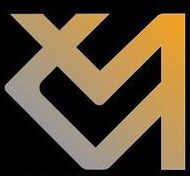
In the last few years, blockchain went from being a trendy term to a pillar of the digital era. Entering 2025, this technology 2025 is no longer just about cryptocurrency it’s an umbrella innovation changing industries ranging from finance to healthcare, logistics, education, and beyond. So, what exactly is blockchain, and why is it increasingly important in the evolving world today?
This article offers a beginner’s introduction to blockchain technology 2025, explaining its framework, practical uses, and why it is more relevant than ever today.
Table of Contents
What Is Blockchain Technology?
To understand Blockchain Technology 2025, we need to start with the basics. It is a distributed ledger technology that records transactions across multiple computers in a way that ensures the data is secure, transparent, and constant. Each transaction is stored in a block, and these blocks are linked together in a chain, hence the name “blockchain”
What makes blockchain different is its immutability and transparency. Once a transaction is recorded, it cannot be altered without altering all subsequent blocks. This prevents fraud and enhances trust.
Key Components of Blockchain Technology 2025
1. Decentralization
Unlike traditional systems that rely on a central authority (e.g. banks or servers), blockchain technology 2025 is based on a peer-to-peer network. This does away with middlemen and enables users to talk directly and securely.
2. Transparency
Every transaction on the blockchain is traceable to all those on the network. This keeps people accountable and reduces the risk of manipulation or error.
3. Security
The transactions are secured and verified by consensus algorithms like Proof of Work (PoW) or Proof of Stake (PoS). Once they are verified, they are locked and information becomes secured.
4. Smart Contracts
They are self-executing contracts with rules established previously. They are used in decentralized applications (dApps) in blockchain technology 2025, carrying out transactions without the need for an intermediary.
Read More: How to Spot Fake Crypto Gurus: Signs and Red Flags
Why Blockchain Technology 2025 Matters

1. Data Integrity and Trust
Blockchain technology brings the trust among the misinformations and frauds that’s happening around the digital world. The data recorded on the blockchain is very much secured.
2. Digital Identity and Ownership
The ownership of digital assets is more important as now the internet evolves so quickly. Blockchain makes it possible for verifiable, user-controlled digital identities and content, ensuring creators and consumers retain ownership of their information.
3. Financial Inclusion
Far too many parts of the globe remain without access to conventional banking. Blockchain technology in 2025 facilitates global financial systems without borders, lowering transaction costs and giving voice to the unbanked.
4. Supply Chain Transparency
From clothes to cuisine, consumers want to know where their goods come from. Blockchain allows every step of the supply chain to be traced and verified, for moral sourcing and on-time delivery.
Real-World Applications of Blockchain Technology 2025
- Healthcare
Healthcare is also being revolutionized through blockchain since it securely stores patient information, tracks the authenticity of medicines, and simplifies insurance claims. Through 2025 blockchain technology, healthcare data is made portable, private, and transparent. - Education
Diplomas, certificates, and transcripts can be stored on the blockchain and hence easily shareable and resistant to forgery. Institutions and employers can verify certificates instantly without paperwork and fraud. - Government and Voting
Blockchain offers secure, transparent, and tamper-evident voting systems. Governments also utilize it in order to maintain clean, audit-able records of land ownership, payment of taxes, and public expenditure. - Banking and Finance
With international funds that are quicker and decentralized finance (DeFi), blockchain is revolutionizing the way we manage money. Smart contracts, stablecoins, and digital wallets all leverage blockchain, improving financial efficiency and security. - Agriculture and Food Safety
Blockchain can track the food from the farm to the plate, keeping it fresh and free from contamination. Such transparency is most important in 2025 when consumerism is driven by sustainability and health.
Read Also: how to use Fibonacci retracement the right way in crypto TRADING
How Blockchain Technology 2025 Supports Ethical Innovation
In an age of rapid technological change, ethics must keep pace. Blockchain technology 2025 naturally encourages transparency, fairness, and user empowerment. Whether it’s verifying charity donations, enforcing fair trade practices, or protecting intellectual property, blockchain supports innovation with a conscience.
The Evolution of Blockchain Technology 2025
Blockchain has come a long way since Bitcoin’s debut in 2009. In 2025, we’re witnessing third and fourth-generation blockchains that offer faster transactions, lower fees, and environmentally friendly consensus mechanisms.
Projects like Ethereum 2.0, Polkadot, Solana, and others are leading the way in blockchain flexibility, compatibility, and usability. This evolution makes blockchain more accessible for businesses, developers, and everyday users.
Challenges Facing Blockchain Technology 2025
Despite the bright prospects in the future, there are certain issues to be addressed:
- Scalability
Millions of transactions per second are still not something that some blockchains can achieve. - Regulation
While governments race to catch up, regulations will decide how blockchain evolves. Policies need to be certain and fair in order to enable innovation without protecting users. - User Experience
Ease is the foundation of mass adoption. Too complex for most, blockchain is. Projects in 2025 are emphasizing simple design and learning to bridge the gap.
Blockchain Technology 2025 and the Rise of Web3
Web3 is the next phase of the internet decentralized, secure, and user owned. At the core of Web3 lies blockchain. It allows users to own their data, participate in decentralized communities, and engage in digital economies without middlemen.
From NFTs to decentralized social networks, blockchain technology 2025 is giving people more control, privacy, and participation in the digital world.
Investment and Job Opportunities in Blockchain Technology 2025
As industries adopt blockchain, the demand for professionals is at an ultimate peak. Blockchain developers, smart contract auditors, data analysts, and content writers are in high demand.
Investors are also eyeing opportunities in blockchain infrastructure, decentralized applications, and tokenized assets. It’s rich in innovation and potential industry.
Environmental Sustainability and Blockchain
Blockchain systems in the early days were criticized for energy consumption. However, blockchain technology 2025 is much different. There are efficient algorithms and Proof of Stake replacing energy intensive mining, and blockchain is becoming sustainable.
There are projects that are now exploring carbon-neutral operations, proving that technology and sustainability walk together.
The Future of Blockchain Technology 2025 and Beyond
Looking ahead, blockchain will have an even greater function to fulfill:
- Artificial Intelligence (AI): Decentralizing AI models and promoting ethical usage.
- Metaverse: Providing ownership of virtual assets and digital identity.
- Global Trade: Enabling faster and more transparent cross-border payments.
- Charity and Aid: Ensuring financial aid reaches the desired recipients without leakage.
In short, blockchain technology 2025 is as much about people as it is about tech; it’s about redefining trust, efficiency, and equity in the digital world.
CONCLUSION
As we navigate the shades of 2025, blockchain technology 2025 emerges not as a trend, but as a revolution. It’s transforming the way we store data, make transactions, build communities, and structure digital economies. As a student, businessperson, or simply an inquisitive person, learning about blockchain puts you at the forefront of tomorrow’s innovations.
The debate is no longer whether blockchain will be in our future but more so whether we are ready to implement it thoughtfully, ethically, and creatively.
